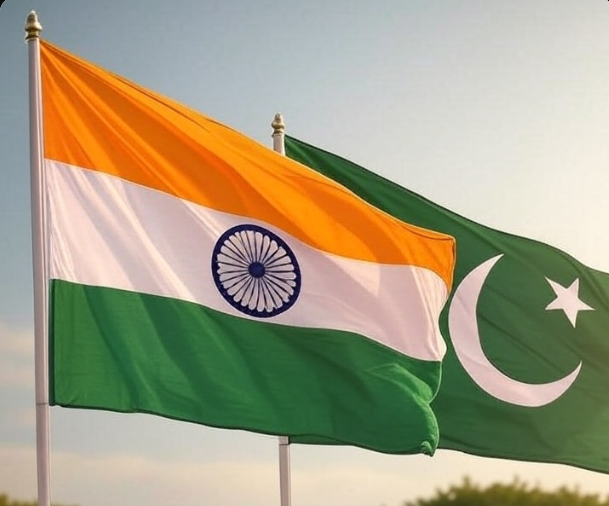Pakistan Is Writing Urgent Letters to India Over Indus Waters:Pakistan has written four urgent letters to India’s Jal Shakti Ministry, pleading for reconsideration of the suspended Indus Water Treaty as fears rise over severe agricultural impacts. With India taking a firm stance—both politically and strategically—the situation signals a growing water crisis in Pakistan and a shift in India’s long-term river management plans.
Pakistan Is Writing Urgent Letters to India Over Indus Waters
As climate challenges intensify and diplomatic relations grow colder, Pakistan finds itself in a desperate position — pleading with India to revisit the suspended Indus Water Treaty. In a significant escalation, Pakistan’s Water Ministry has written four official letters to India’s Jal Shakti Ministry, urging for a review or reprieve.
The reason is simple yet alarming: mounting water woes that could devastate its agricultural sector, particularly the Rabi crop season. These letters, as per protocol, have been forwarded to India’s Ministry of External Affairs. However, there is no indication that India plans to respond or reconsider. The Indian government has made its stance clear: water and blood cannot flow together.
According to inside Reports, India has been recalibrating its approach to the Indus waters for some time. Key strategic steps are being considered or already underway. One of the major steps involves harnessing the river water flowing into Pakistan. India aims to maximize the usage of these waters — particularly from the Indus, Chenab, and Jhelum rivers — which, under the original treaty, allowed Pakistan control over nearly 80% of the shared waters.
A major infrastructure development being planned includes the construction of a 12-kilometer tunnel to divert water for Indian agricultural and strategic use. Additionally, India is working on a 120–130 kilometer long canal network to further redirect river flow within its own territory.
Efforts are also in place to revive several long-delayed dam and water diversion projects that had been stalled due to legal or environmental hurdles. The Indian government is fast-tracking these initiatives to ensure future water security. Beyond infrastructure, India is also expanding storage capacity by deepening existing reservoirs and increasing their holding capability.
This will help regulate the water flow more efficiently and retain more water on Indian soil. While river water cannot be stopped entirely—especially during the monsoon—India is developing medium- and long-term strategies to store, divert, and manage flow during non-monsoon months.
On the political front, Prime Minister Narendra Modi has drawn a clear red line. He has reiterated that terror and talks cannot go together, and neither can blood and water. This hardening of India’s diplomatic posture means that there will be no revival of the existing Indus Water Treaty under the current circumstances. If any future discussions take place, they will be on completely new terms—terms that prioritize Indian interests above past arrangements.
Pakistan’s repeated outreach via formal letters reflects the distress within its agricultural and water management systems. Any significant reduction in water inflow could severely impact Rabi crop production, raise inflationary pressures, and even risk food insecurity and unrest in rural areas. Despite this, India has remained firm and largely silent, focusing instead on accelerating its infrastructure plans and asserting its water rights more aggressively than ever before.
In the years to come, Pakistan may face extreme water shortages unless a new understanding is reached or global pressure mounts. Meanwhile, India appears committed to securing its water future, moving forward with legal assertiveness and strategic clarity. The taps to Pakistan have not been completely shut off yet—but they are certainly being tightened.
Disclaimer:
This article is based on publicly available news and government statements. The Indus Water Treaty and its implications involve sensitive diplomatic and strategic dimensions. The content here reflects the current status and may evolve with future developments.

